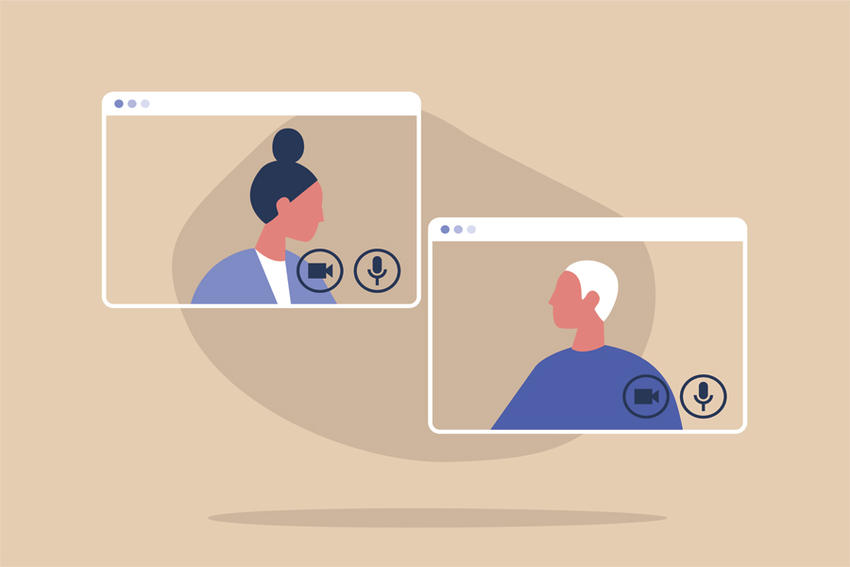Cross-cultural connections through virtual exchange program

Though it is often a cornerstone of higher educational experiences, international programming and study abroad opportunities have been rare at best throughout the COVID-19 pandemic. However, there is more than one way to embrace a global mindset through education—and a School of Dentistry team has made an international experience possible without leaving campus.
Karin Quick, DDS, PhD, director of the Division of Dental Public Health and director of global programs, knows how valuable these global experiences can be in forming well-rounded, empathetic providers. She and Mallory Hedquist, academic services coordinator at the School of Dentistry, had been considering the addition of a virtual component to global programs, in order to enhance a short-term observership exchange with Ljubljana University in Slovenia in early 2020.
“We were looking at a way for students to build relationships with one another over time in advance of the short-term visits, to provide more context,” Quick explained. “It’s also an important way for more students to have this opportunity: students who might not have been able to participate in the past.”
The COVID-19 pandemic dashed those hopes, but opened the door to focus on a virtual pilot.
Quick and Hedquist began a series of conversations with Dr. Ti-Sun Kim, Program Director at Heidelberg University’s dental school, and they came up with an idea that worked in the short- and long-term: a virtual exchange program with an optional hybrid in-person component.
The concept was simple: foster professional relationships similar to those students would form if they were to go abroad, encouraging the same growth and cultural competency from the safety of one’s home.
Since January, 10 students from the University of Minnesota and 12 students from Heidelberg have made up the inaugural cohort of the virtual exchange program. They met once per month to network, discuss cases and learn from one another.
Atlanta Roloff, DDS ’22, decided to join the program because she knew how much wisdom she would gain from a new perspective. In the past, she had shadowed dentists in Mexico and Ecuador. “Even just shadowing, I got to learn a different perspective,” she said. “And every dental school teaches differently, so it let me expand my world view.”
She hasn’t been let down by the experience. Learning from students at Heidelberg has reminded her that there is more than one way to look at every case, every patient she sees. She recalled the students presenting a periodontal case that they approached very differently than she would have expected at the U. “Those moments, where you see different ways to do things are so cool,” she reflected. “You get to take a step back and rethink everything.”
Roloff also appreciated the virtual, long-term component of the exchange. “It gave us a chance to be there over many months, rather than a short time,” she explained. “It gives you time to open up to new experiences and learn from one another.”
More than broadening her worldview, Roloff is sure this experience will make her a better dentist. “It opened my mind to the fact that there are so many ways to approach every situation, and the more ways I can learn, and the more people I can find to teach me their perspectives, the better dentist I will become.”
Quick is excited to see how these relationships continue to grow over the course of the students’ eventual careers. “Seeing our students build professional relationships with peers internationally that may extend into the future is exciting,” she reflected.
As the program moves forward, Quick and Hedquist hope to bring in-person experiences to coordinate with the virtual exchanges. They hope to host students from Heidelberg this spring, and the virtual program will add Ljubljana University, Slovenia and University of the Western Cape, South Africa for 2022.
The lessons they have learned and the value the program has brought throughout the pandemic is here to stay. “Our dental students are inherently curious and have a desire to continue learning,” Hedquist said. “Getting to know standards of care that are different from those in Moos Tower has been invaluable, and even when we are able to travel internationally again, we will continue to offer this option.”